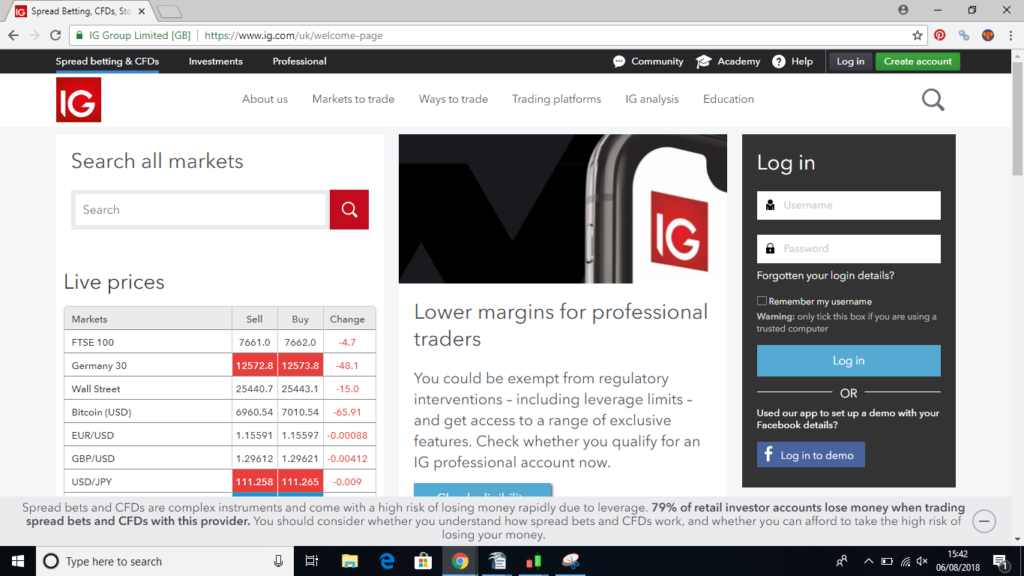95% of Traders Lose Money – Fact or Fiction?
If you search online or read some of the forex trading forums, you will often hear people say that 95% of traders lose money, reconfirming the idea that it is very hard to make consistent profits from trading the financial markets.
This statistic was probably based on data from various different brokers originally, but the reality is that the percentage of profitable traders is possibly higher than 5%, as previously suggested.
IG’s New Disclaimer
Presumably as part of the the new ESMA rules and regulations, IG have revealed how many of their traders lose money trading spread bets and CFDs (contracts for difference).
In addition to pointing out the risks of trading spread bets and CFDs, they point out that:
“79% of retail investor accounts lose money when trading spread bets and CFDs with this provider.”
(correct at the time of writing – 6 Aug 2018)

My Own Thoughts
The first thing I would like to say is that I applaud IG for providing this information because it helps to provide complete transparency, and helps to build trust with both their existing customers and any prospective traders who are thinking about opening an account with them.
With regards to this 79% figure, I was actually very surprised because I have always believed that around 90-95% of traders lose money, based on my own previous experience and from reading industry statistics.
It is still difficult to know for sure because these figures may not be replicated across all brokers, and it may still be the case that only around 5% of traders make money on average across the entire industry.
However it should at least act as encouragement to know that 21% of traders with one particular spread betting and CFD provider are able to generate profits because this is quite a significant number.
UPDATE: IG and other brokers are now required to update this information in their disclaimer every 3 months, and so they now state that 81% of their traders lose money as of 12 February 2019. Nevertheless, this is still a lot less than the 95% figure that is so often quoted online.